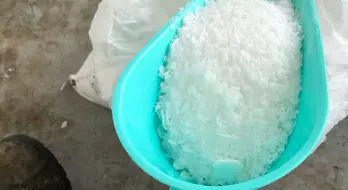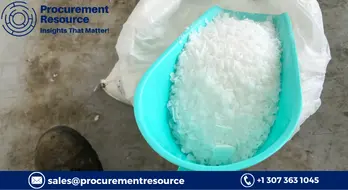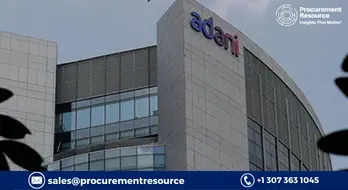Adani Group has Indefinitely Suspended Work on USD 4 Billion PVC and Caustic Soda Projects
.webp)
The Adani Group has temporarily haltedhalted construction on its over USD 4 billion (about INR 34,000 crore) coal-to-polyvinyl chloride (PVC) project in Mundra, Gujarat.
Also, the corporation has abandoned its project financing efforts. According to an investment banker aware of the development, it was in discussions to raise INR 14000 crore from a group of seven to eight banks led by the State Bank of India.
The development comes after the conglomerate was accused of fraud by short-seller Hindenburg Research, sparking a sell-off in the company's shares and bonds that erased more than USD 140 billion off the market value of Gautam Adani's empire.
Request Access For Regular Price Update of Polyvinyl Chloride (PVC)
The initiative to convert coal into PVC has been put on indefinite hold. The Adani Group was prepared to get a loan from a group of banks totaling INR 14,000 crore for the project, but the business opted to halt it before the credit committee could sanction the loan.
An email question received on March 18, 2023 went unanswered by the Adani Group representative. Adani Group requested its partners in an email to stop cease all operations of the scope of work and fulfillment of all obligations" for the Mundra Petrochem Ltd. Green PVC project until further notice.
The 2-million-tonne-per-year coal-to-PVC plant was designed to compete with market leader Reliance Industries in the petrochemical sector by producing PVC grades such as suspension PVC, chlorinated PVC, and emulsion PVC.
Adani Petrochemicals Limited (APL), a wholly-owned subsidiary of Adani Enterprises, the Group's flagship company, was established on July 30, 2021, with the purpose of building refineries, petrochemical complexes, specialty chemicals units, hydrogen and related chemicals plants, and other similar facilities.
The project was scheduled to start up in 2025 or 2026 and consume 3.1 million tonnes of feedstock coal annually that was imported from Australia, Russia, and other nations. The coal pyrolysis unit at the coal-to-PVC plant converts coal into calcium carbide, which is then converted into acetylene. After processing the acetylene gas with hydrochloric acid, vinyl chloride monomer (VCM), which is used to create Polyvinyl Chloride (PVC), is created.
Currently, more than half of India's PVC needs are imported. Agriculture and infrastructure, such as water pipes and sprinkler systems, are where PVC is most commonly used. Oil and other feedstock are mostly imported into India for the production of PVC. Adani Group had previously stated that it will be able to turn the coal-to-pvc plant into a low carbon-intensive and unique project in this sector due to its enormous renewable capacity of 24+ GW.
Read More About Polyvinyl Chloride (PVC) Production Cost Reports - REQUEST FREE SAMPLE COPY IN PDF
As per Procurement Resource, the nearly USD 4 billion (about INR 34,000 crore) coal-to-polyvinyl chloride (PVC) project in Mundra, Gujarat, has temporarily been put on hold by the Adani Group. Also, the company has given up on its project funding attempts. It was being discussed to raise INR 14000 crore from a group of seven to eight banks led by the State Bank of India, according to an investment banker familiar with the process.
The development comes after short-seller Hindenburg Research accused the conglomerate of fraud, causing a sell-off in the company's shares and bonds that reduced the market value of Gautam Adani's empire by more than USD 140 billion.
The plan to turn coal into PVC has been suspended indefinitely. The Adani Group was prepared to borrow INR 14,000 crore from a number of banks for the project, but the company decided to put an end to it before the credit committee could approve the loan.




